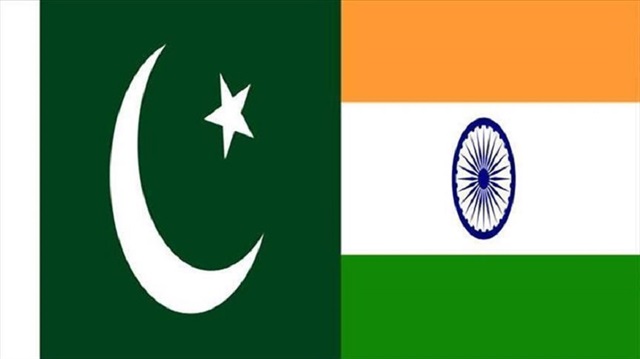
Islamabad to approach international arbitration if New Delhi does not entertain its objections on controversial projects
Talks between longtime rivals India and Pakistan on lingering water sharing disputes ended with no breakthrough on Thursday, local media reported.
At the end of the two-day talks, Islamabad warned to go for international arbitration if New Delhi ignores its concern over several controversial projects.
The much-awaited talks held in the northeastern city of Lahore marked the first diplomatic engagement with India by the new government in Pakistan.
The nine-member Indian delegation was led by water commissioner Pradeep Kumar Saxena. Pakistan was represented by Mehr Ali Shah along with other senior officials.
Pakistan is mainly objecting to the construction of two hydropower projects -- 1,000-megawatt (MW) Pakal Dul and 48-MW Lower Kalnal -- on the Chenab River by India .
Islamabad views the construction of the projects a violation of the Indus Water Treaty, an objection New Delhi rejects.
Under the treaty brokered by World Bank in 1960, the waters of the eastern rivers – the Sutlej, Beas, and Ravi – have been allocated to India, while the three western rivers – the Indus, Jhelum, and Chenab – to Pakistan.
Initially, the two countries had signed a three-month water sharing “standstill agreement” in 1947; however, the issue remained a flash point between the two neighbors till the signing of the Indus Water Treaty.
“We have categorically made it clear that we will have no option but to use international forums, [including] taking the case to the International Court of Arbitration, etc -- in case India failed to address our concerns that are absolutely genuine and can be resolved amicably,” local English daily Dawn reported quoting an unnamed Pakistani official who attended the talks.
The Indian side, according to the newspaper, assured Pakistanis of taking up the issues in the next meeting of the commission to be held in India. No date has been fixed for the next round of talks.
According to the treaty, Pakistan gets 131 million acre-feet of water annually, which provides almost 70 percent of Pakistan’s needs for irrigation. India, on the other hand, gets 26 million acre-feet of water from the three western rivers, which cope for less than 10 percent of India’s irrigation needs.
India has also been locked in a water tussle with China, which plans to construct its own dams and proposed diversion of the Brahmaputra River that originates in Tibet and provides a third of India’s needs for irrigation.
Islamabad has already approached the World Bank seeking its assistance in resolving the simmering dispute.
The World Bank in May this year said it was seeking an “amicable “ solution to the water dispute between the two nuclear rivals.
It paused the process of negotiation in December 2016, to help India and Pakistan consider alternative approaches to resolve their dispute over the two hydroelectric plants. “We are announcing this pause to protect the Indus Water Treaty,” the World Bank President Jim Yong Kim had said.


